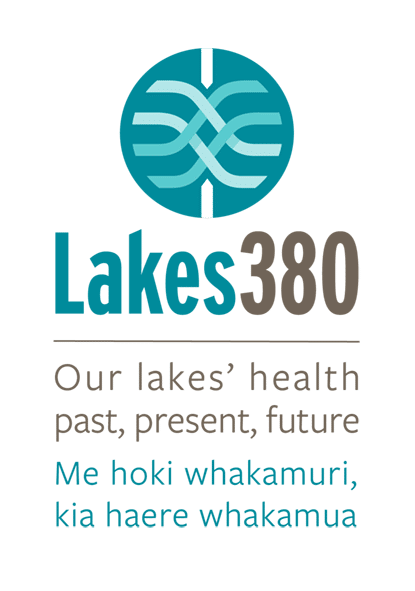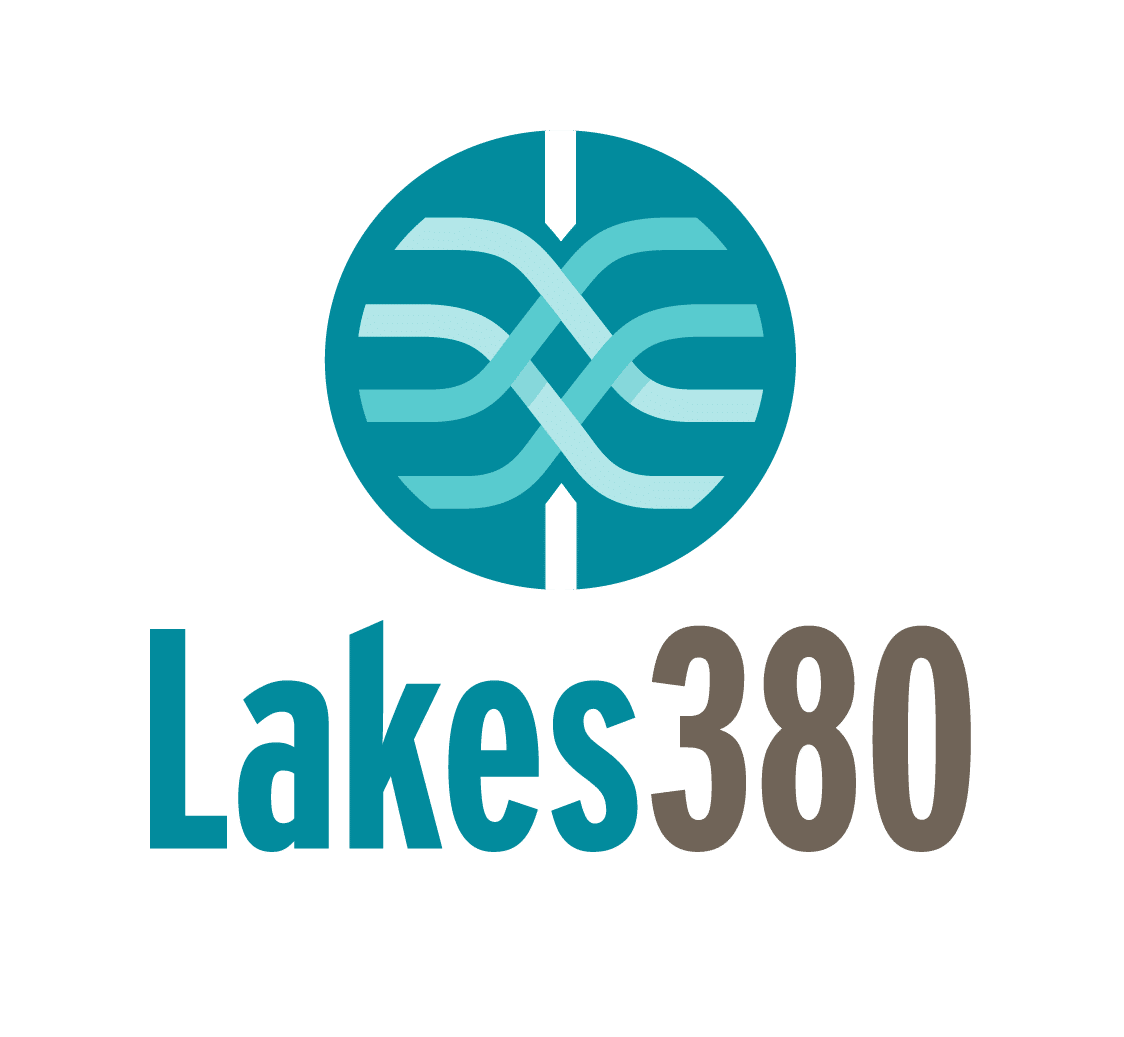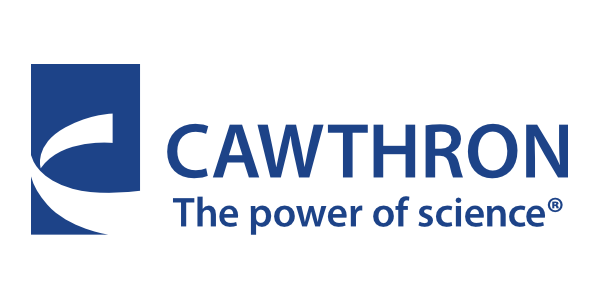Kahuparere
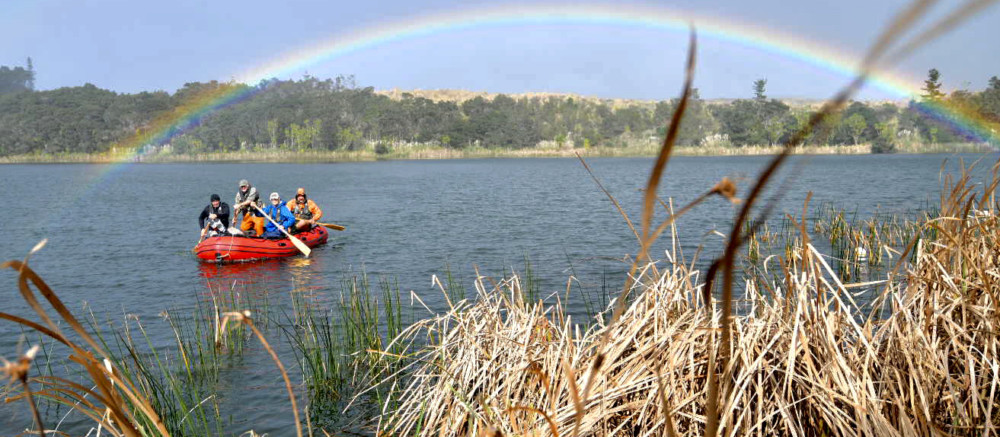
This small lake (6.5 hectares) is situated on sand dunes in a pastoral dominated catchment with some forestry and native scrub. The riparian margin is fenced and there is dense emergent vegetation around the lake edge. Lake Kahuparere has a maximum depth of 7.6 m (source www.lawa.co.nz).
Kapoai
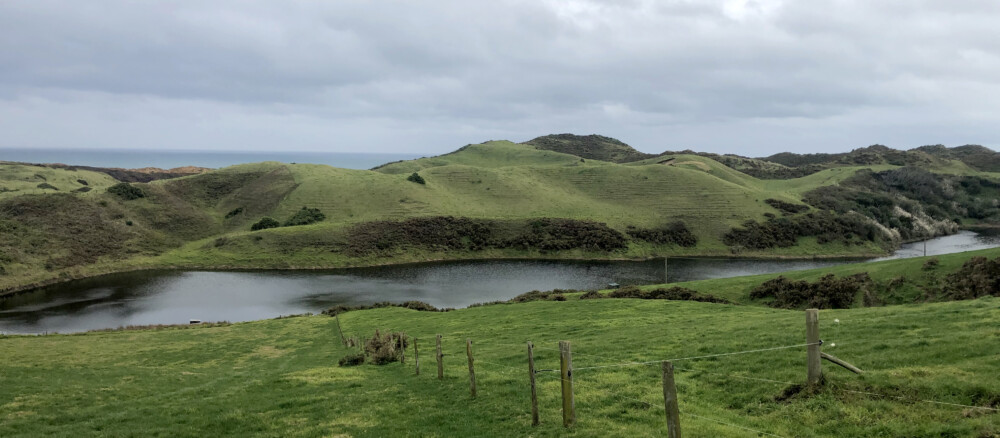
Kapoai is a dune lake set within a pastoral catchment on the Pouto peninsula. The lake has recently been fenced around much of the perimeter. There is an inlet at the northern end of the lake, draining approximately 2 km of pasture to the north-east.
Lake Rotootuauru (Swan)

The catchment surrounding this lake is mostly pasture, with 30% pine plantation and some areas of scrub. The lake perimeter is fenced. Grass carp were introduced in May 2009 to eradicate Egeria and Ceratophyllum demersum (hornwort). Fencing off the lake to exclude cattle from the large emergent beds surrounding much of this lake has created […]
Lake Waingata
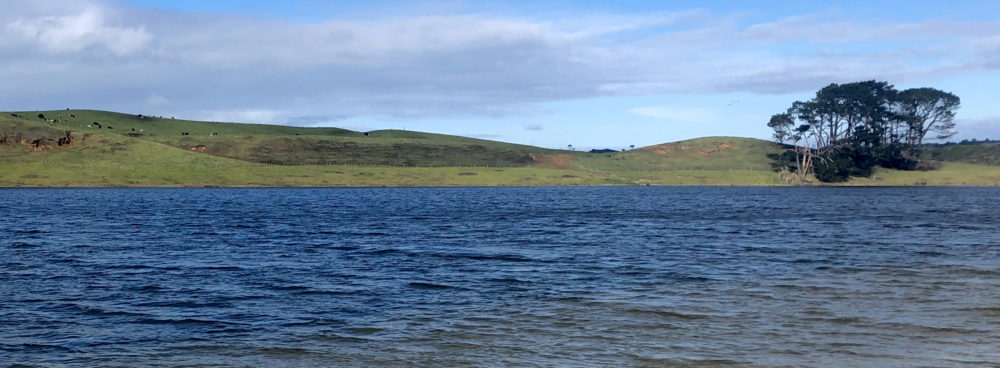
A small dune lake on the Pouto Peninsula with a depth 9.5 m, set in a pastoral catchment.
Lake Wainui
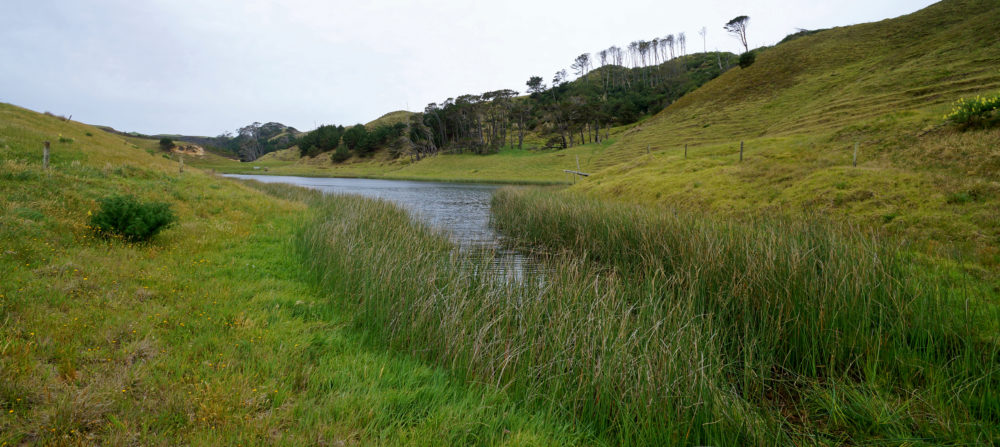
Lake Wainui is a small 4.8 hectare dune lake with a maximum depth of 10.5 m, located on the Pouto Peninsula. The lake is surrounded by pastoral land. A narrow riparian edge has recently been fenced to exclude livestock which should enable emergent vegetation to establish (source lawa.co.nz).
Lake Tutaki
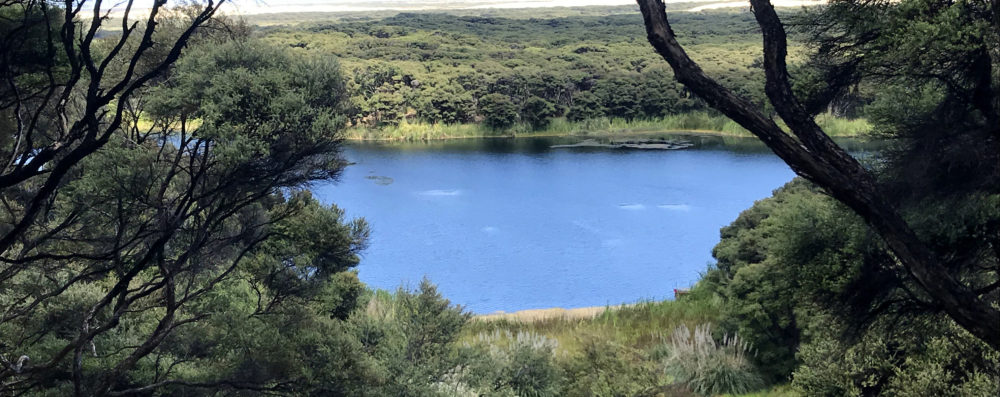
This is a small dune lake on the Poutu Peninsula surrounded by pine forest.
Lake Humuhumu
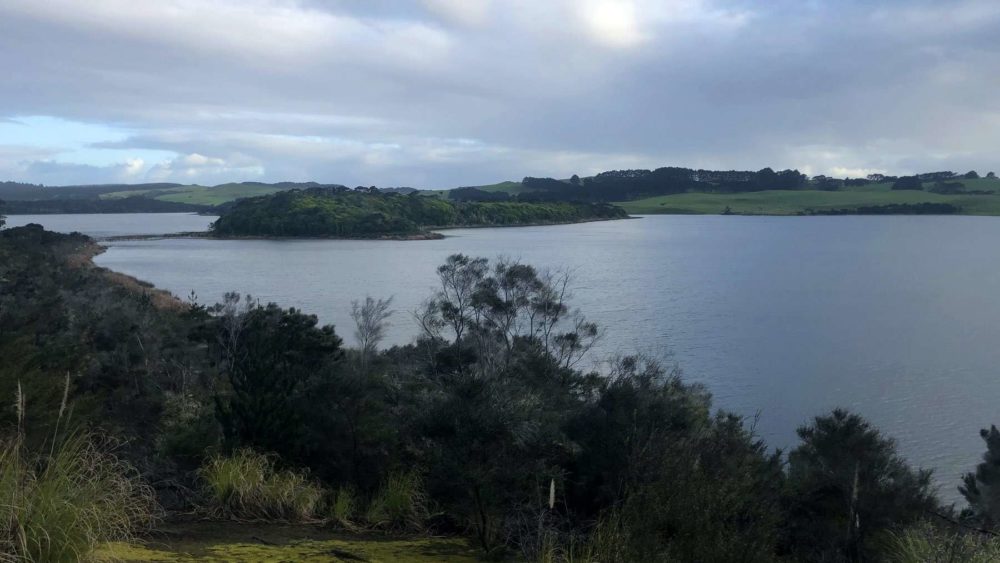
Lake Humuhumu is the deepest Pouto lake, with a maximum depth of 15.2 m. This large dune lake (129.1 hectares) is situated in a catchment dominated by pasture, with pine forestry on the western side of the lake and scattered pockets of kanuka scrub (source www.lawa.co.nz).
Lake Kai-iwi
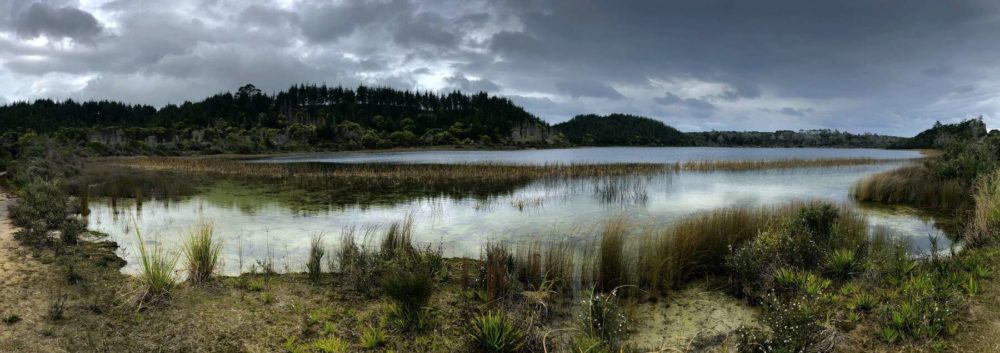
Lake Kai Iwi is 27.6 hectares in area with a maximum depth of 15.7 m. It is the smallest of the Kai Iwi lake group. The lake margin is bordered by scrub, with recently felled pine plantation in its upper catchment. There is a small stream that flows into Lake Kai Iwi on the southern […]
Lake Kanono
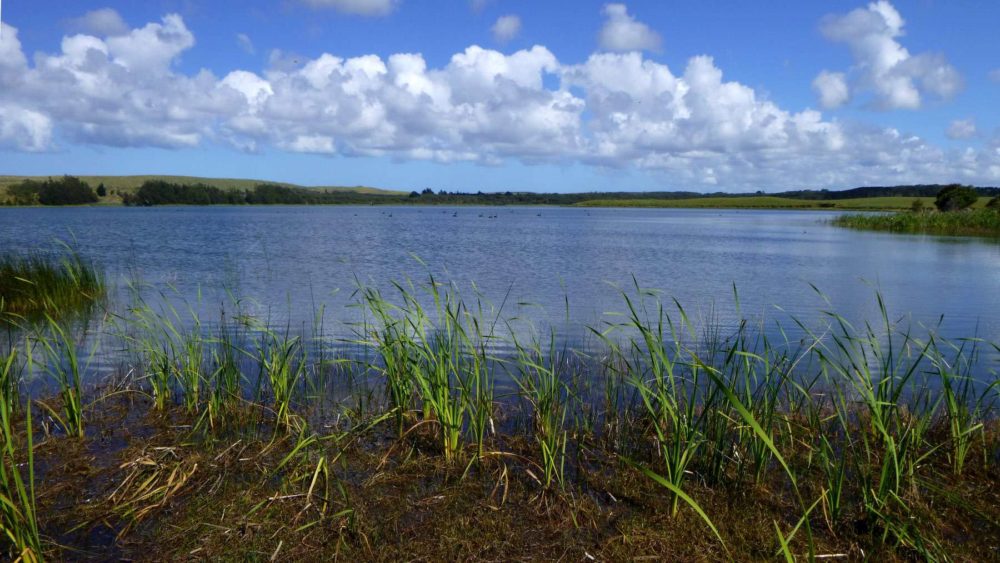
Lake Kanono is a relatively large (74.2 hectares) and deep dune lake (15.6 m) located near Pouto Point. The catchment is predominately pastoral with pine forestry on the western edge and small areas of native scrub. Although approximately two thirds of the lake margin on the pastoral side is fenced with an excellent quality deer […]
Lake Karaka
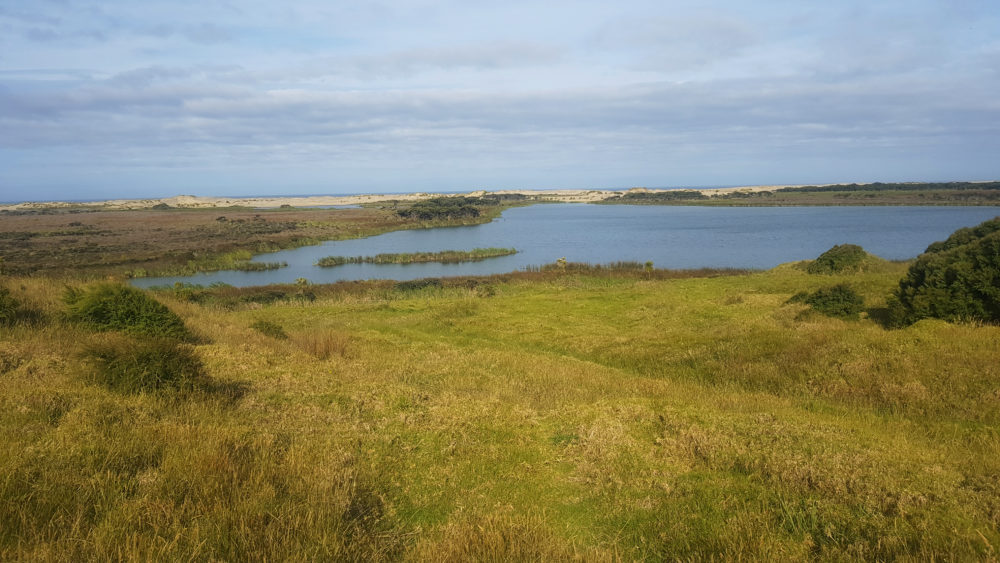
Lake Karaka is located near the West Coast on the Pouto Peninsula. Its catchment comprises wetlands, native scrub, pastoral land and forestry. The lake is 12.2 hectares in size and has a maximum depth of 5.8 m (source www.lawa.co.nz).
Lake Mokeno
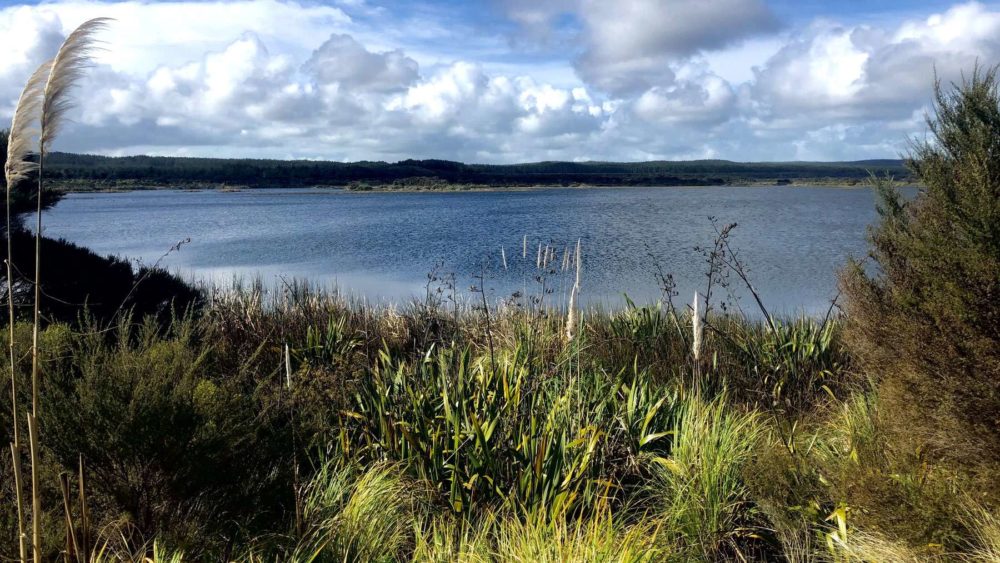
Lake Mokeno is 154.7 hectare in size making it the largest Pouto lake. It has a maximum recorded depth of 6.5 m and is located near the West Coast. It is entirely surrounded by native scrub and wetlands, with pine forestry in its upper catchment. Water from this lake flows south through extensive wetlands until […]
Lake Rotokawau (Pouto)
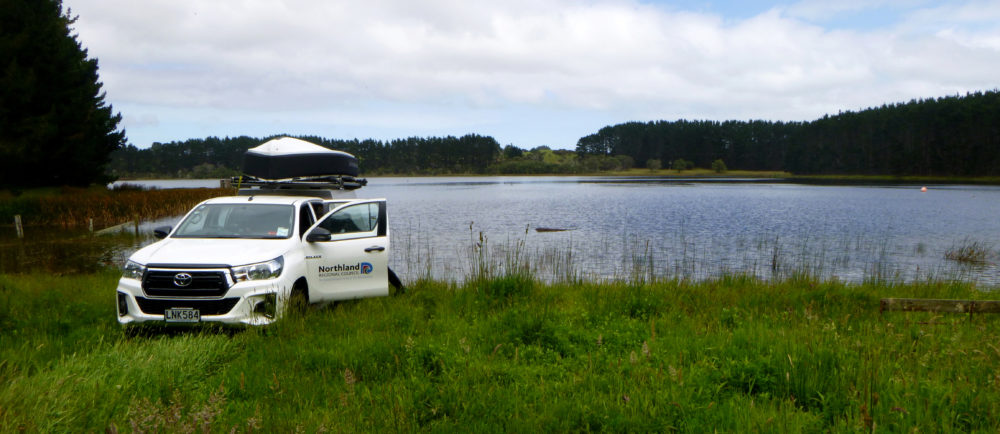
Lake Rotokawau is set in a pastoral catchment and is 28.6 hectares in size with a maximum depth of 13 m. The lake is completely fenced and is bordered by pine forestry (source www.lawa.co.nz)..
Lake Rototuna

This small 6.9 hectare dune lake is 4 m deep and located mid-way down the Pouto Peninsula in a mainly pastoral catchment. It is easily accessible from the main road. The lake is fenced in the area administered by the Department for Conservation and the lake margins have been planted with native wetland species (source […]
Lake Taharoa (Northland)

Lake Taharoa is Northland’s deepest lake with a maximum depth of 38 m and is the region’s second largest lake (237 ha). Its catchment is dominated by pine plantation, however the trees were felled in late 2010. This lake is popular for boating, swimming and water skiing (source www.lawa.co.nz)..
Lake Waikare
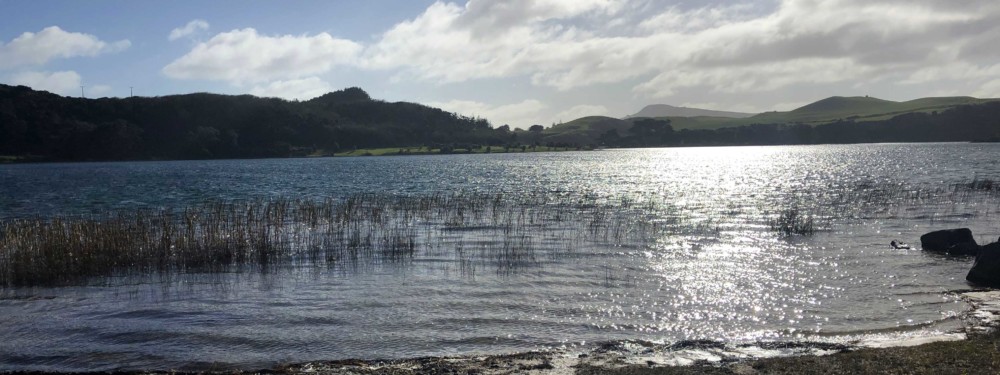
Lake Waikare is a relatively large lake (29 hectares) with a maximum depth of 29.5 m. This lake is easily accessible and is regularly used for recreational activities. Its catchment is mainly native scrub, with some pine forestry and pastoral land use (source www.lawa.co.nz)..
